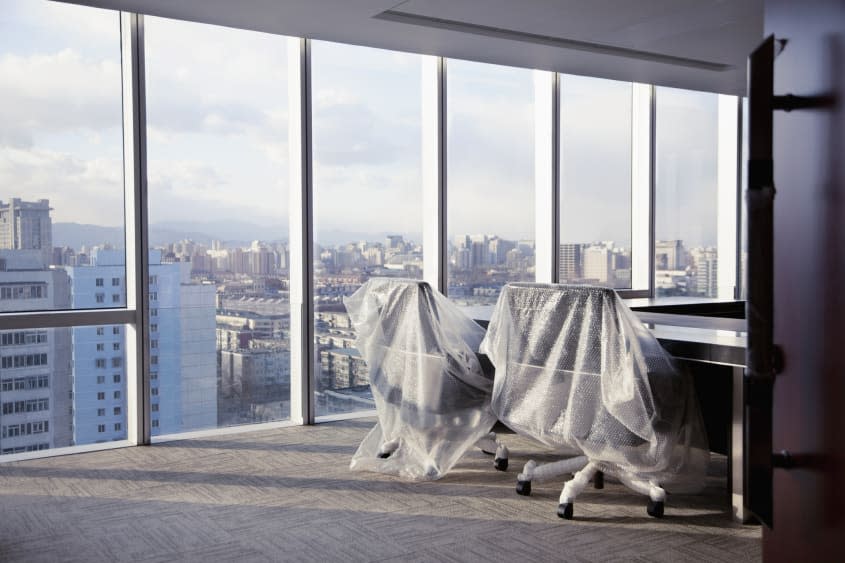Companies plead for workers to come back

The smartest insight and analysis, from all perspectives, rounded up from around the web:
Stop me if you've heard this before, but "businesses are ready to get serious" about getting workers back to their desks, said Emma Goldberg in The New York Times. Actually, more than serious: They're desperate. After "three years of scattershot plans for returning to in-person work," a wave of big companies — including Disney, Amazon, AT&T, and Meta — recently announced firm intentions (for real this time) to call workers back in. Employers have largely accepted "that hybrid work is a permanent reality, with just over a quarter of full workdays in the country now done at home." But business leaders also say that the work-from-home experiment has made them "feel emphatically that they need some in-person time." Salesforce — which in 2021 had declared the 9-to-5 workday "dead"—announced last month that "it will give a $10 charitable donation per day" for 10 days on behalf of in-office employees. Google is trying the opposite tack, announcing that it will begin tracking badge swipes and punishing workers on performance reviews for unexplained office absences.
Work-from-home proponents note the 13% productivity bump early in the pandemic, when offices were closed, said Allison Schrager in City Journal. But that's not sustainable. "Innovation and problem-solving" rely on spontaneous collaboration. "In-person workers also provide valuable services like mentoring, training and advocating for younger colleagues," who get less feedback when they're working from home. Businesspeople say this creates habits of laziness, said Samantha Delouya for CNN. Take it from the still hardworking 81-year-old Martha Stewart. All of France, she reminds us, is "off for August." Look at their level of success. "That," Stewart reminds us, "is not a very thriving country."
That's just another example of the "false belief that the office is the secret sauce to productivity," said Gleb Tsipursky in Fortune. Since when do you get more work done in the office? As anyone who has ever worked next to a chatty colleague knows, desk jobs can be more like "a productivity black hole" where "focused work gets sucked into oblivion." Forcing workers back into the office is even worse for productivity. A recent Gallup study "found that workers who could work remotely but are mandated to go to the office" have the lowest engagement of anyone. Certainly, if you want your company to have mentoring and training opportunities, you should create mentoring programs. But mentoring won't "magically happen" by just "packing employees into an office like sardines."
The shift to remote work was inevitable, said Dror Poleg in The Atlantic. "Once the quality of online collaboration crossed a crucial threshold, the internet itself" was going to become "the premier facilitator of human interaction." And once white-collar workers could earn a nice living anywhere, cities were going to be in trouble. Only the speed with which this has happened was unpredictable. We're on the threshold of a major urban crisis, with offices at half occupancy and $1.5 trillion in commercial loans coming due. We need to rethink what cities are about, not try to push white-collar workers back in into "boxes of glass and steel."
This article was first published in the latest issue of The Week magazine. If you want to read more like it, you can try six risk-free issues of the magazine here.
You may also like
Former Mets player receives annual $1.1M payout despite retiring in 2001

